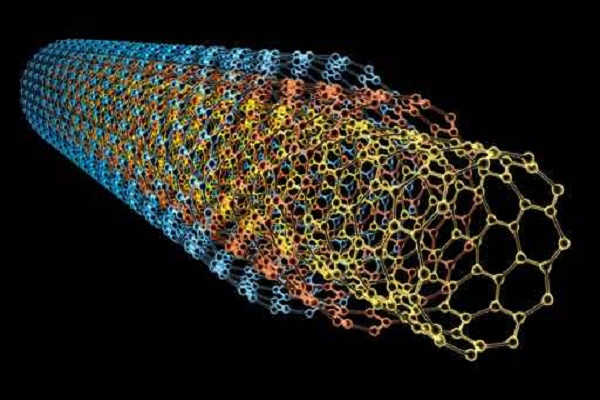Graphene breakthrough 'could boost fuel cell performance'
Scientists discover graphene can conduct protons, much to the delight of fuel cell manufacturers

A newly-discovered property of graphene could pave the way for the creation of new hydrogen-based fuel cell technologies, University of Manchester researchers have declared.
The one-atom thick material has been touted by the technology industry for several years now as a possible replacement for silicon in computer chips, because of its ability to quickly conduct electrons.
However, it's now been discovered protons hydrogen atoms stripped of their electrons can also pass through the material, despite graphene being impermeable to all other gases and liquids.
The findings are the result of an international collaboration involving researchers from China and The Netherlands, as well as the University of Manchester.
The research team also found that protons pass through the material better at higher temperatures.
It's claimed the findings could lead to graphene being used to boost the efficiency of proton-conducting membranes in fuel cells where hydrogen and oxygen are used to generate electricity.
Marcelo Lozada-Hidalgo, a PhD student working on the project, explained: "You put a hydrogen-containing gas on one side, apply small electric current and collect pure hydrogen on the other side. This hydrogen can then be burned in a fuel cell."
Get the ITPro daily newsletter
Sign up today and you will receive a free copy of our Future Focus 2025 report - the leading guidance on AI, cybersecurity and other IT challenges as per 700+ senior executives
At the moment, the researchers admit the amount of hydrogen that can be transferred through the material is small, but by sharing their findings hope it will inspire others to experiment with the technology.
"This is the initial stage of discovery, and the paper is to make experts aware of the existing prospects," Lozada-Hidalgo added.
"To build up and test hydrogen harvesters will require much further effort."
Furthermore, it is also hoped the discovery could one day lead to graphene-based membranes being used to collect hydrogen from the atmosphere that can then be used in fuel cells to create mobile electric generators.
Dr Sheng Hu, a postdoctoral researcher working on the project, said the group is hopeful about their findings being commercialised in the not too distant future.
"It looks extremely simple and equally promising. Because graphene can be produced these days in square metre sheets, we hope that it will find its way to commercial fuel cells sooner rather than later."
The news comes after Quieen Mary University researchers in London hailed graphene's potential as a secure communication connection.
-
 Cleo attack victim list grows as Hertz confirms customer data stolen
Cleo attack victim list grows as Hertz confirms customer data stolenNews Hertz has confirmed it suffered a data breach as a result of the Cleo zero-day vulnerability in late 2024, with the car rental giant warning that customer data was stolen.
By Ross Kelly
-
 Lateral moves in tech: Why leaders should support employee mobility
Lateral moves in tech: Why leaders should support employee mobilityIn-depth Encouraging staff to switch roles can have long-term benefits for skills in the tech sector
By Keri Allan